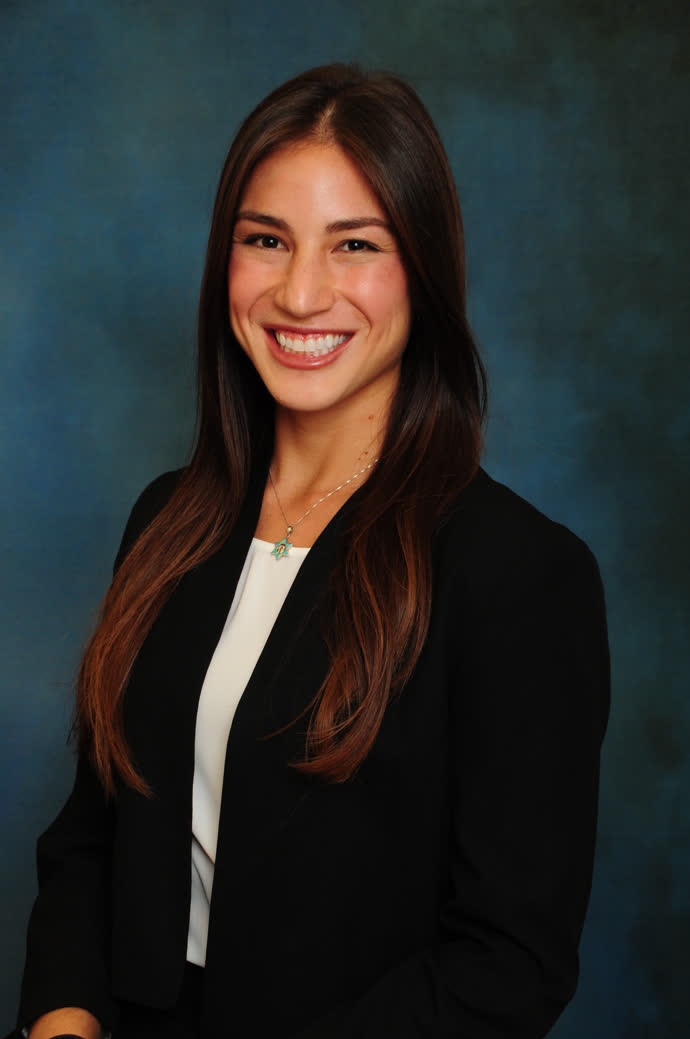
Deedee Bitran has come a long way since the days her dad used to quiz her on math and spelling on the drive to school. A recent law school graduate and now practicing business litigation attorney in Florida, Bitran is the recipient of the 2016 Holocaust Remembrance Essay Award, which earned her a certificate and honorarium in the amount of $500.
The Holocaust Remembrance Essay Award - made possible through the generosity of UAlberta Law alumnus Henry Wolfond of Toronto - is given annually to a law student who writes the best essay on a topic relating to law and the Holocaust. The award is intended to keep the memory of the Holocaust alive in the legal community, and arose from the 1997 "The Holocaust: Art / Politics / Law" conference at UAlberta Law, which was organized by Professor Emeritus Frederick C. DeCoste and Professor Bernie Schwartz.
"I came across the University of Alberta's Holocaust Remembrance Essay competition and was immediately interested because of my personal experience with antisemitism," said Bitran.
"I lived with my grandparents throughout law school and have met some of their friends that were in the Holocaust. I have seen their arms with tattooed numbers, listened to their heartbreaking stories, and have the utmost respect for them," she said, adding that she has been to Yad Vashem in Israel [the country's official memorial to victims of the Holocaust], where a room is filled with candles and mirrors to represent the six million lives lost.
In her essay "Anti-Israel," a Camouflage Platform for Antisemitism, Bitran focuses on addressing a disturbing trend she noticed only a few years ago.
"It was not until law school that I heard people openly claiming that the Holocaust never occurred or was wholly exaggerated. This Holocaust denial infuriated, shocked, and saddened me," she said.
In addition to addressing antisemitism, the essay also argues against the BDS (Boycott, Divestment, Sanctions) movement, a global campaign that attempts to increase economic and political pressure on Israel to comply with international law and acknowledge Palestinian rights. BDS calls for boycotting brands that were created or sold in Israel.
"It [the essay] argues in support of anti-BDS legislation and discusses how such legislation is a wise and constitutional alternative to combatting antisemitism," she said.
Bitran's essay notes that as recently as March 2016, the state of Florida passed anti-BDS legislation to prevent the state from investing in or doing business with companies participating in boycotts of Israel.
Bitran wrote the essay to empower other students who are troubled by what they hear on university and college campuses, and said that she hopes the essay will help them to respond when confronted with antisemitism.
Despite already making her presence felt in the legal community, Bitran didn't always plan on a career in law. She obtained a Bachelor of Science in Speech, Language, and Hearing Sciences (Summa Cum Laude) from the University of Florida in May 2012 with a 3.99/4.0 GPA, with plans to become an audiologist. It was only during a guest lecture by an attorney - once she was enrolled in a doctorate program for audiology - that, fascinated by what she heard, Bitran spontaneously applied to law school following her completion of her final exams from that semester.
"I realized that I could best help the deaf population as an attorney and that my skillset would be better used in that career path as opposed to being an audiologist," she said.
Bitran attended law school at Florida International University (FIU) College of Law, where she received a Dean's Merit Scholarship (a full tuition academic scholarship), and earned a JD (Magna Cum Laude) in May 2016.
At law school, Bitran was involved in a number of activities and won seven national writing competitions. She was an Articles and Comments editor for the FIU Law Review, and was also on the FIU Law Board of Advocates Appellate Moot Court Team. In addition, she competed in the FIU Intramural Appellate Advocacy Competition, where she was a semi-finalist and earned the best brief runner-up award. She was also President of the FIU Employment & Labor Law Society.
More recently, Bitran is an executive board member of the Zionist Organization of America (Florida chapter), involved with membership outreach with the Women's International Zionist Organization, and an attorney at Shutts & Bowen LLP in the business litigation and employment law departments.
In addition to winning the Holocaust Remembrance Essay Award, Bitran is also a winner of the National Academy of Social Insurance Writing Competition, the Pacific Legal Foundation Writing Competition, and placed second in the New York State Bar Association Writing Competition.
Since submitting her paper to the Holocaust Remembrance Essay competition, she received word that the paper was also chosen as the winner of the National Law Review Law Student Writing Competition, and she has secured publication agreements for her articles with the Elon Law Review, the Women's Rights Law Reporter, the Florida International University Law Review, the National Law Review, and the Saint Thomas Law Review.
Bitran says that her family is the driving force and inspiration behind her many successes.
"My entire family - grandparents, parents, stepparents, husband, in-laws, and five younger siblings - inspires me," she said, adding that her grandmother is her best friend.
"My grandmother was the 41st female surgeon in the United States and played a big role in raising me. She is an academic and a true 'go-getter' that has always supported my endeavors by encouraging me to never shy away from a challenge. She rescues animals, teaches Israeli dancing classes twice a week, and still finds time to read all of my papers," she said.
When it comes to Bitran's work ethic and her ability to break down historical barriers, it appears that the apple really doesn't fall far from the tree.
To read Bitran's essay, click here.